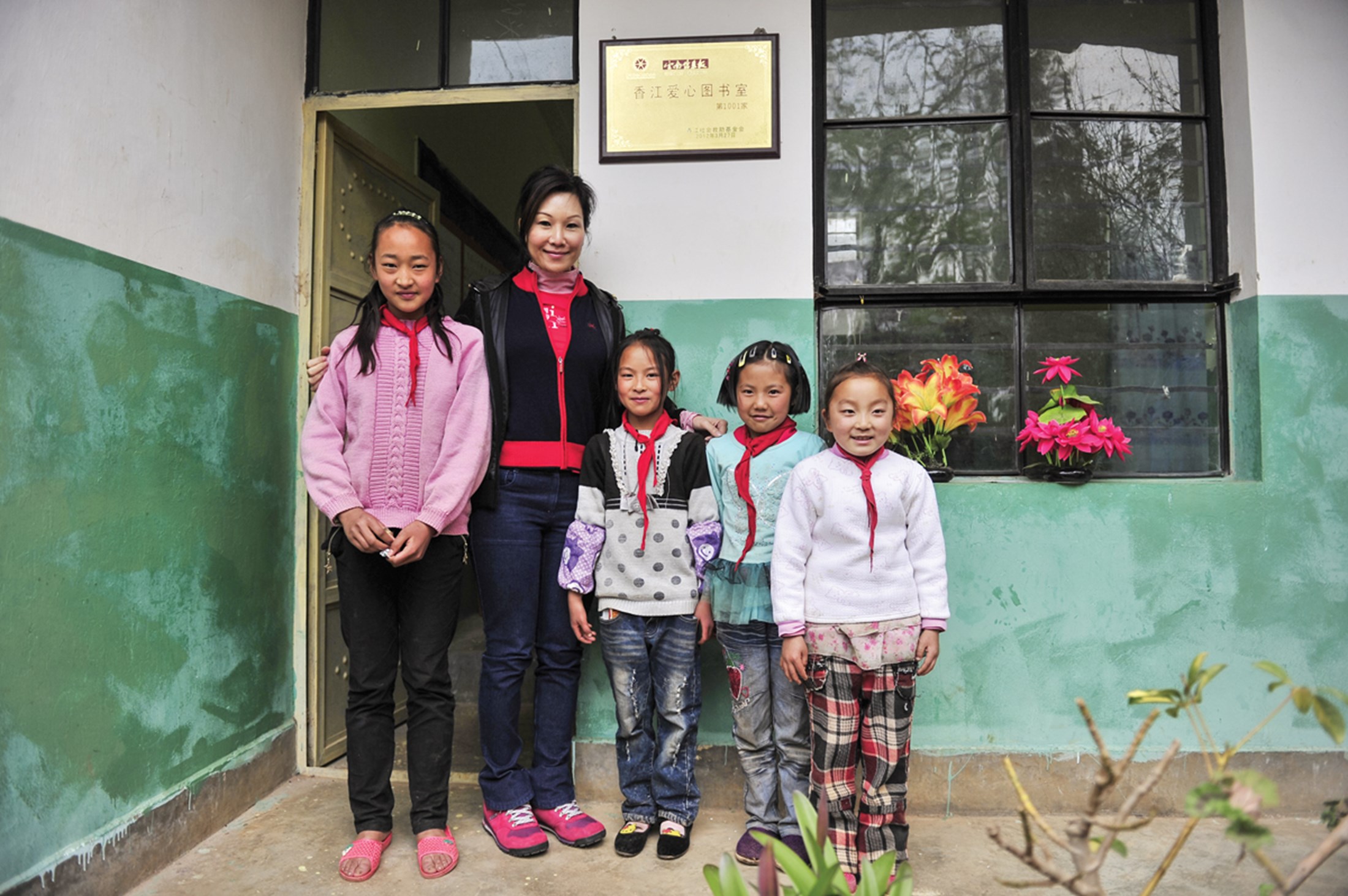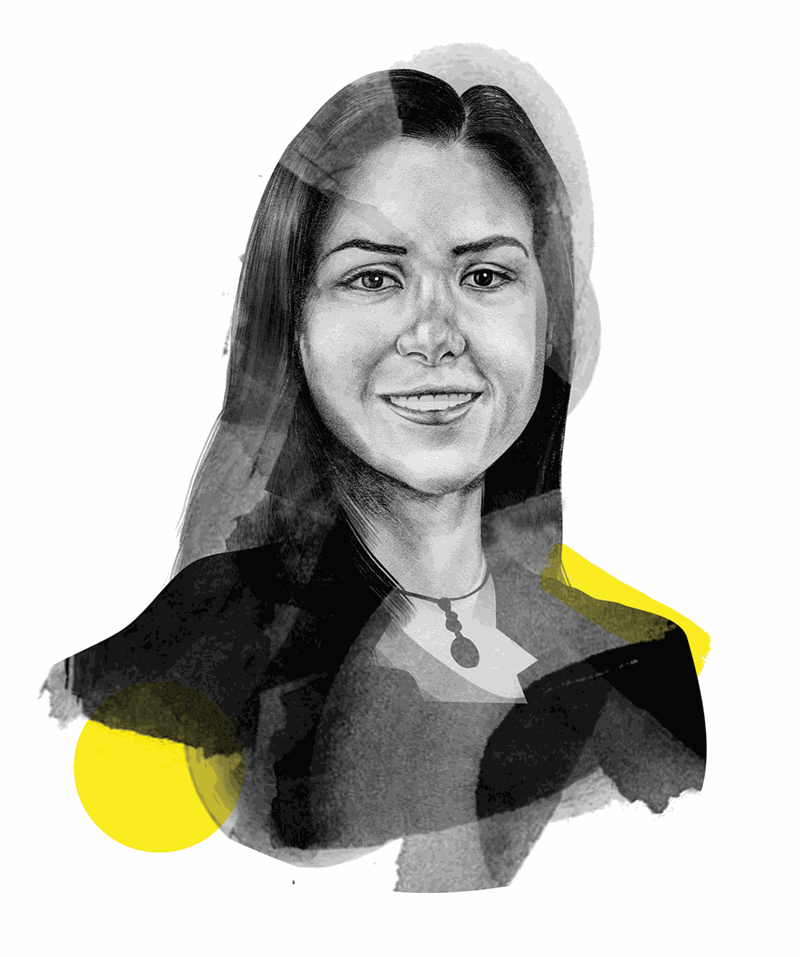
EASTERN PROMISE
China’s nascent philanthropic sector is finding its feet, says self-made billionaire Zhai Meiqing, founder of the country’s first private foundation.
Andrew Carnegie has an unlikely fan in Zhai Meiqing. The president of China’s privately-held HeungKong Group may be a century distant and a culture apart from the late US philanthropist, but she still sees him as a role model for modern giving.
“Never in my life have I had a mentor or someone I learned from before I started focusing on philanthropy,” says the Guangzhou-based entrepreneur, “but his philosophy of giving and living inspires me. I’m learning from him.”
A year ago, Zhai was better known for her business skills than her benevolence. As cofounder of a $1.4bn conglomerate with stakes in finance, real estate, retail and more; and a member of China’s fast-expanding class of billionaires, she has been a cog in the country’s dizzying economic growth.
But the giving that grew in lockstep with her success attracted fewer headlines, until she was named a winner of the 2017 Carnegie Medal of Philanthropy. The award brought global recognition to her efforts to drive the uptake of philanthropy within China.
“It’s inspired me to try and encourage other entrepreneurs to pay attention and give more,” she says today. “ I want to see the next generation take on this culture of giving.”
Zhai has been a quiet backer of philanthropy’s languid rise in China. She founded the country’s first private foundation in 2005, almost a decade after first approaching the government to propose establishing a vehicle for her giving. Her query followed years of donating to quasi-state charities – often with little clarity about how the money was spent – but was refused on the grounds that individuals were not allowed to run social organisations.
“The government wasn’t ready and I had to give up,” she explains. “But I believed that as entrepreneurs gained money, and started to think more about giving back to society, the government would eventually have to allow private charity work. The need was there. I said to myself that I would wait until that day, and I’d be the first to establish a foundation.”
Her persistence paid off. The HeungKong Charitable Foundation – which is listed as number 001 by the Ministry of Civil Affairs – has since reached more than 2 million beneficiaries through its initiatives in education, poverty alleviation and disaster relief. It has built more than 1,500 libraries, provided microloans for women to start businesses, given funding to orphans, single mothers, children with disabilities and the elderly, and paid for impoverished students to enrol in university.
It is financed almost entirely by family and company donations – “By law, we can’t fundraise publicly,” Zhai explains – and spends around $4.4m (30m yuan) a year to support its own programmes, and in donations to national charities.
Its remit is deceptively simple: “Our goal is to help identify social problems, and ensure our money is spent on the people who really need it,” says Zhai. “We want to bring these issues to the attention of the government, and appeal for legislation to solve them. We want to be a foundation with long-term impact. And we want to influence other people through our work. I look at it as a progressive journey.”

In China, where philanthropy has lagged behind an explosive rise in private wealth, this last goal is more ambitious than it first appears. Despite being home to the world’s largest population of billionaires – China has two new entrants to the club every week, according to Forbes – it has one of the lowest rates of charitable giving in the world.
A 2010 charity event held in Beijing by Bill Gates and Warren Buffett for 50 of China’s super-rich was notable mainly for the number who stayed away.
This does not necessarily mean China’s wealthy lack generosity. While philanthropy is often held up as a particularly western concept, in fact it has deep roots in Chinese culture. Benevolence is a key tenet of both Confucianism and Buddhism, and acts that contribute to a harmonious society are held in high esteem.
Major natural disasters can trigger a groundswell of support from millions of Chinese people – in response to the devastating Sichuan earthquake in 2008, for example, charitable donations bypassed $14bn – but there is less understanding of the role philanthropy can play long-term in helping to solve complex social problems.
“Until recently, people were only asked to donate when there was a national disaster, so there is less familiarity with other forms of charity,” says Zhai. “But we are still a developing country with a huge gap between the rich and the poor: there is a lot more we can do to help.”
The slow growth of giving also points to growing pains in China’s civil society, which suffers with a lack of infrastructure, accountability and limited avenues of giving. Wealthy donors have battled with a lack of clarity on rules, and thickets of red tape.
Compounding this is the Chinese public’s scepticism of charity work; a position deepened by a string of scandals among major state-run charities that began in 2011. (One study found less than a third of registered charities in China met international standards for transparency and disclosure.)
Would-be philanthropists can find themselves both the subject of public suspicion over their motivations, and struggling to ensure their funds go to good use. As Jack Ma, the cofounder of e-commerce giant Alibaba, told an audience at Peking University in 2015: “Giving donations to charities is more difficult than earning money.”
What is clear is that this picture is changing, aided by an updated charity law and the example of trailblazers such as Zhai and Ma, whose foundation holds share options for about two per cent of Alibaba’s equity. Between 2010 and 2016, donations from the top 100 philanthropists in mainland China more than tripled to $4.6bn.
In the 12 months to March, 76 Chinese individuals donated more than $5m to causes including education, healthcare and poverty alleviation, according to Shanghai-based Hurun Research Institute. Many are opting to take a hands-on approach to social good, to avoid ceding control of their donations and how they are used.
“From the first private foundation in 2005, now we have more than 3,900 - they exceed the number of national foundations,” explains Zhai. “The growth rate is around 30 per cent a year.”

This model also reflects the very personal nature of much of the giving. Many of China’s rising philanthropists have been propelled out of poverty by the country’s long economic boom, and have a deep impulse to channel their money and energies into helping others to do the same. Education is a popular lever for this.
For Zhai, who grew up in Guangzhou, a visit to a poor and rural village was the spur behind her first major donation to fund a school for the local children. She has since – individually and through her foundation – financed more than 300 schools, at a cost of between $30,000 and $146,000 each.
One of the foundation’s earliest projects was the ‘Five 1,000’, which saw it pledge to establish 1,000 school libraries, to give funding to 1,000 orphans, needy families and undergraduate students, and to recruit 1,000 volunteers. A newer scheme aims to provide 1,000 elderly people a year with free treatment for cataracts, the world’s leading cause of visual impairment.
As China’s economic growth cools, these projects hint at the role civil society could play in tackling entrenched issues such as rural education, access to healthcare, and the mammoth bid to lift some 30 million Chinese citizens out of poverty. Philanthropists could be willing partners to the government, believes Zhai, if given more space to operate.
“In the future, I think most of the charitable work in China will come from the private sector, rather than the government.”
The challenges to philanthropic giving in China remain significant. Curbs on fundraising make it tricky for even legitimate NGOs to operate and receive resources, while efforts to professionalise the sector have been hurt by a law that caps foundations’ administrative costs at 10 per cent. Along with limiting the ability of foundations to hire and pay qualified staff, the cap has contributed to a sector-wide shortage of skilled talent.
Improved tax and fiscal incentives are also needed to encourage giving, says Zhai, who has lobbied to see China’s preferential tax policy extended to include charitable donations. Lastly, foundations themselves have a role to play in boosting transparency and winning public trust in their role, she notes.
“People are still worried about how money is spent: we need to be open about our activities and impact to build credibility.”
Technology may help to pave the way for a wider takeoff in philanthropy in a nation that is home to the world’s largest number of internet users and the fastest growing e-commerce market. Many of China’s newly-minted billionaires amassed their wealth in the sector and are now using the same methods to encourage charitable giving.
Mobile payment platforms such as Tencent Holding’s WeChat Pay and Alibaba’s AliPay, which channel donations directly to charities, are helping to fuel a rise in public fundraising drives. It’s a trend that is helping to instil a new awareness of giving among Chinese youth, who in turn are bringing a new energy to the sector.
“Young people know how to use these technologies to influence the public, and gain their attention,” says Zhai. “They want to take part in solving social issues.”
Zhai hopes to create a legacy for her philanthropy, and has actively engaged her own children in her giving. Zhai's son chairs a volunteer group whose members represent the second generation of family businesses. “These are our future leaders and it’s necessary for them to experience charitable work, and understand why it is important,” she notes.
For Zhai, it is China’s socially aware youth that will be a key influence in how the philanthropic sector develops. Leaving aside big-ticket giving from the country’s super-rich, the emergence of a generation of business leaders who seek both social impact and profit could be the real driver behind achieving a more equal society. It’s a model Zhai hopes to follow herself.
“I see my business differently now,” she explains. “It began as a means to make money, but now the company’s success means we can give money where it’s needed. Today, charity is the most meaningful thing in my life.” – PA





